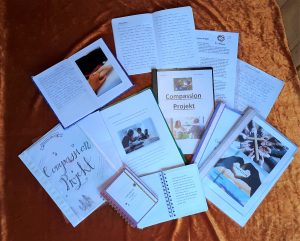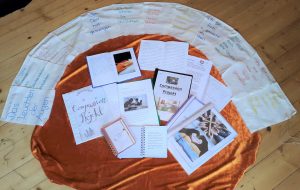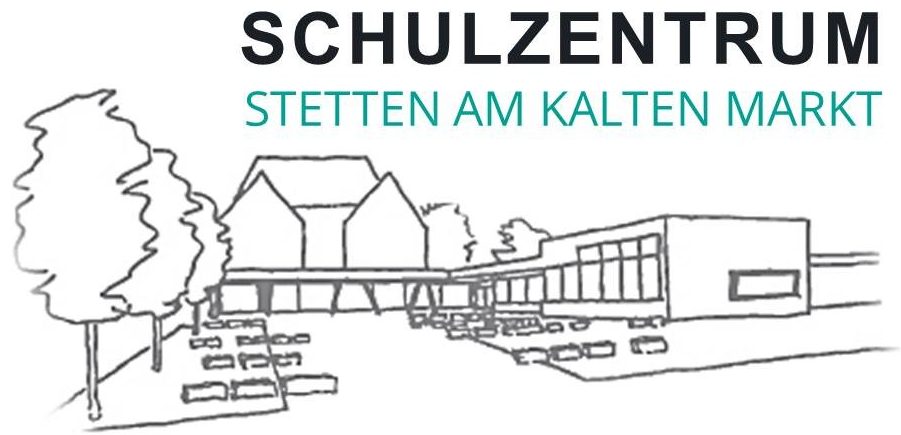The glow in the child's eyes
Annemarie Ziegler
Against the noticeable increase in social coldness in our society, school chaplain and religion teacher Martina Straub at the Stetten a.k.M. school centre is setting a clear sign of humanity: this year she initiated the COMPASSION project in a pilot trial with the learning partners of learning group 10, which is intended to sensitise pupils in dealing with people in need of help. The success of her project proves Martina Straub right: social commitment is just as important a competence as a school-leaving certificate and educates a person holistically.
COMPASSION was launched as a social learning project by a working group of the German Bishops' Conference and the School Foundation of the Archdiocese of Freiburg. The aim was to give pupils an insight into various social institutions such as old people's homes, kindergartens or charitable organisations for the duration of a work placement, in order to give them the opportunity to gain their own experience in dealing with the disadvantaged and to strengthen their empathy. In 2002, COMPASSION was awarded the Alcuin Award of the European Parents Association and corresponds to the topic-oriented project Social Commitment, which was anchored in the educational plan for secondary schools in Baden-Württemberg in 2004.
Adapted to the local conditions in the municipality of Stetten a.k.M., the first COMPASSION group started in January 2020 with a scope of eight hours of care for people in need of help from their own environment. Relatives, friends and acquaintances were accompanied and supported on their sometimes difficult journey through life. The learning partners noted down the insights gained in a mandatory documentation, which contained a description of the support provided as well as their own reflection. On this basis, a discussion took place in the classroom at the end of the COMPASSION period, in which the students' experiences, some of which were drastic, were professionally processed.

Human action and solidarity are considered the cornerstones of successful socialisation and enable people to take on ethically relevant tasks in their own living environment. Those who are permanently dependent on the help of others can learn something from those for whom it is natural to be healthy and independent. The learning partners of the pilot project can now report from their own experience that this leads to enriching, deep interpersonal insights and experiences. For example, that someone was pleased that they had left some particularly beautiful flowers while mowing the lawn. Or that it is nice to see each other and spend time together. It is so good to receive a thank you for little things and to make a big difference even with insignificant things. It is indescribable when a child's eyes light up when they receive attention. Three dying people were particularly close to the hearts of the pupils concerned. The shared gratitude for the precious time of togetherness, which one might otherwise not have taken, became an existential personal experience.
Mrs. Straub, the school chaplain, painted the heart experiences of the young COMPASSION companions on small colourful cloths and lined them up next to each other: a prayer flag based on the Buddhist model. In this way, she made a very practical connection to the previous topic of the learning group, "Buddhism". According to Buddhist beliefs, the words written down are blown with the wind into the world and the sky.

